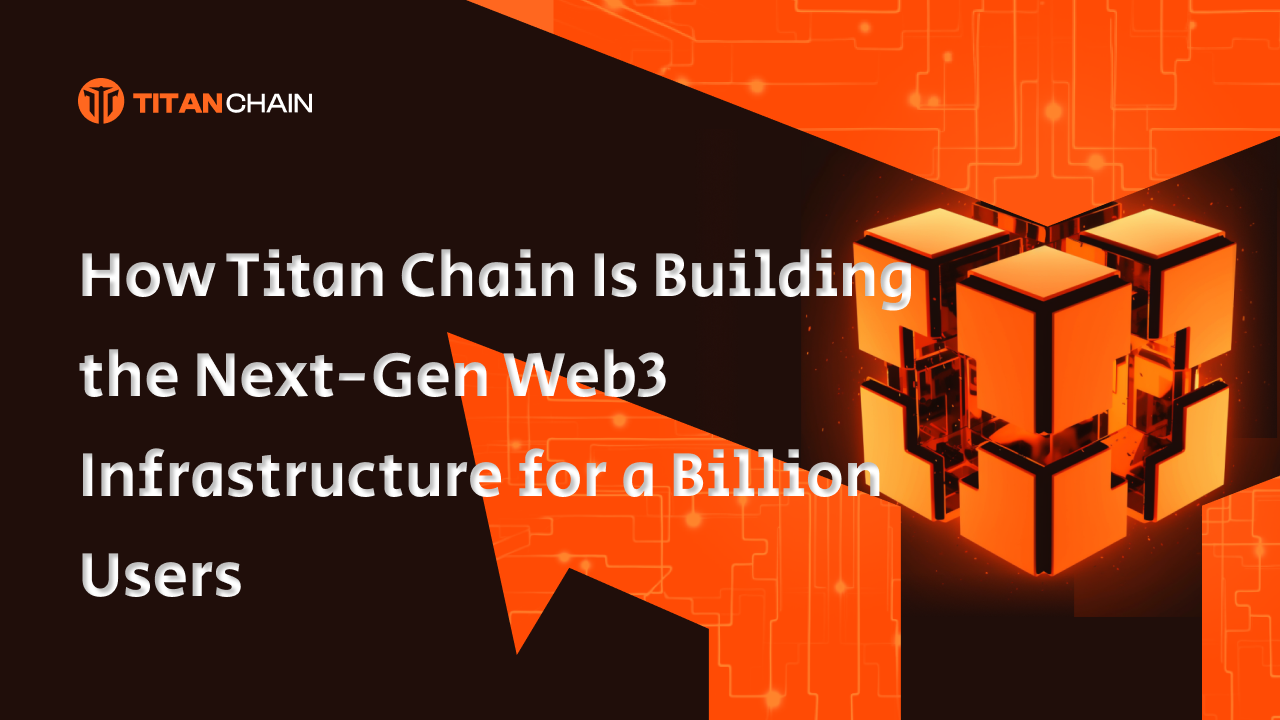As L1 blockchain infrastructure continues to evolve and shift toward real-world applications in 2024, modular design, scalability, and cross-chain interoperability have emerged as key battlegrounds in the competition among next-generation networks. Against this backdrop, Titan Chain is steadily gaining traction in the industry. Developed by the Titan Lab team, Titan is a high-performance, EVM-compatible Layer 1 blockchain built with a modular architecture and financial-grade security standards. It aims to redefine the foundational logic of Web3 infrastructure—delivering ultra-low fees, enhanced composability, and acting as a critical bridge between CeFi and DeFi ecosystems.
Backed by Tokenize Xchange —with over $5 million in liquidity and a user base of more than 2 million—Titan Chain is positioning itself as a major force in the on-chain transformation of financial products and real-world Web3 adoption. This article explores Titan’s development trajectory across technology, ecosystem, and market strategies—and how it intends to build a blockchain gateway for the next billion users.
Redefining L1 Design with a Modular Technical Stack
Built on Cosmos SDK with Performance and Flexibility in Mind
Titan Chain is constructed using the Cosmos SDK, with Tendermint Core integrated at the consensus layer to enable fast finality and seamless state synchronization. Unlike conventional monolithic chains, Titan introduces a modular architecture that functions more like a flexible, composable blockchain OS. Developers can deploy and integrate standardized modules—such as account abstraction, liquidity strategies, or compliance controls—on demand, significantly lowering development overhead.
The chain’s EVM compatibility provides developers with a familiar programming environment, while Cosmos’ inherent cross-chain capabilities offer the underlying infrastructure for seamless asset, data, and protocol interoperability. Combined with its low gas costs and high throughput, Titan is well-suited for use cases across DeFi, GameFi, and institutional finance.
Building a Product Ecosystem Grounded in Real Use Cases
Unlike many L1 projects that focus solely on technical benchmarks, Titan Chain’s ecosystem strategy is anchored in usability and practical deployment. Its core product suite includes:
- Hyperion – A native yield aggregation protocol offering structured on-chain yield strategies, serving scenarios such as staking, game economies, and liquidity farming.
- Powerflow – An institutional-grade platform for yield decomposition and asset management, already in use by centralized exchanges and Web3 financial platforms, with built-in risk controls and asset pool segmentation.
- Untitled Wallet – A lightweight, multi-chain wallet with built-in compliance layers, designed to serve new users and university ecosystems in emerging markets.
Together, these components form a closed-loop infrastructure—from chain to application to user entry point—enabling developers to bring products to market with minimal friction.
From Singapore to the World: A Regionally Driven Growth Strategy
Founded in Singapore, Titan Lab leverages the regulatory licenses and financial network of its parent company, Tokenize Xchange, which has over 2 million active users across key Asian markets. With this foundation, Titan’s ecosystem strategy follows a “regional penetration + offline engagement” model.
In 2024, Titan organized offline bootcamps, university programs, and on-chain task campaigns in Singapore, Taiwan, and Malaysia—driving real user acquisition and usage. At the same time, strategic collaborations with industry leaders such as Animoca Brands and OneZero have helped expand Titan’s reach into verticals like gaming, trading, and asset management.
Conclusion: Titan as a Scalable Engine for Mass Adoption
Looking at Titan Chain’s progress, it becomes clear that it’s more than just another high-performance L1—it’s an execution-driven framework designed to deliver Web3 adoption from first touch to full deployment.
By combining modular infrastructure (Cosmos SDK), EVM compatibility, and real-world user liquidity from the Tokenize ecosystem, Titan Lab is laying the groundwork for true mass onboarding into Web3. Titan’s long-term ambition goes beyond building “a better chain”—it aims to serve as an infrastructural connector in a multi-chain financial world, powering seamless value migration across CeFi and DeFi.


